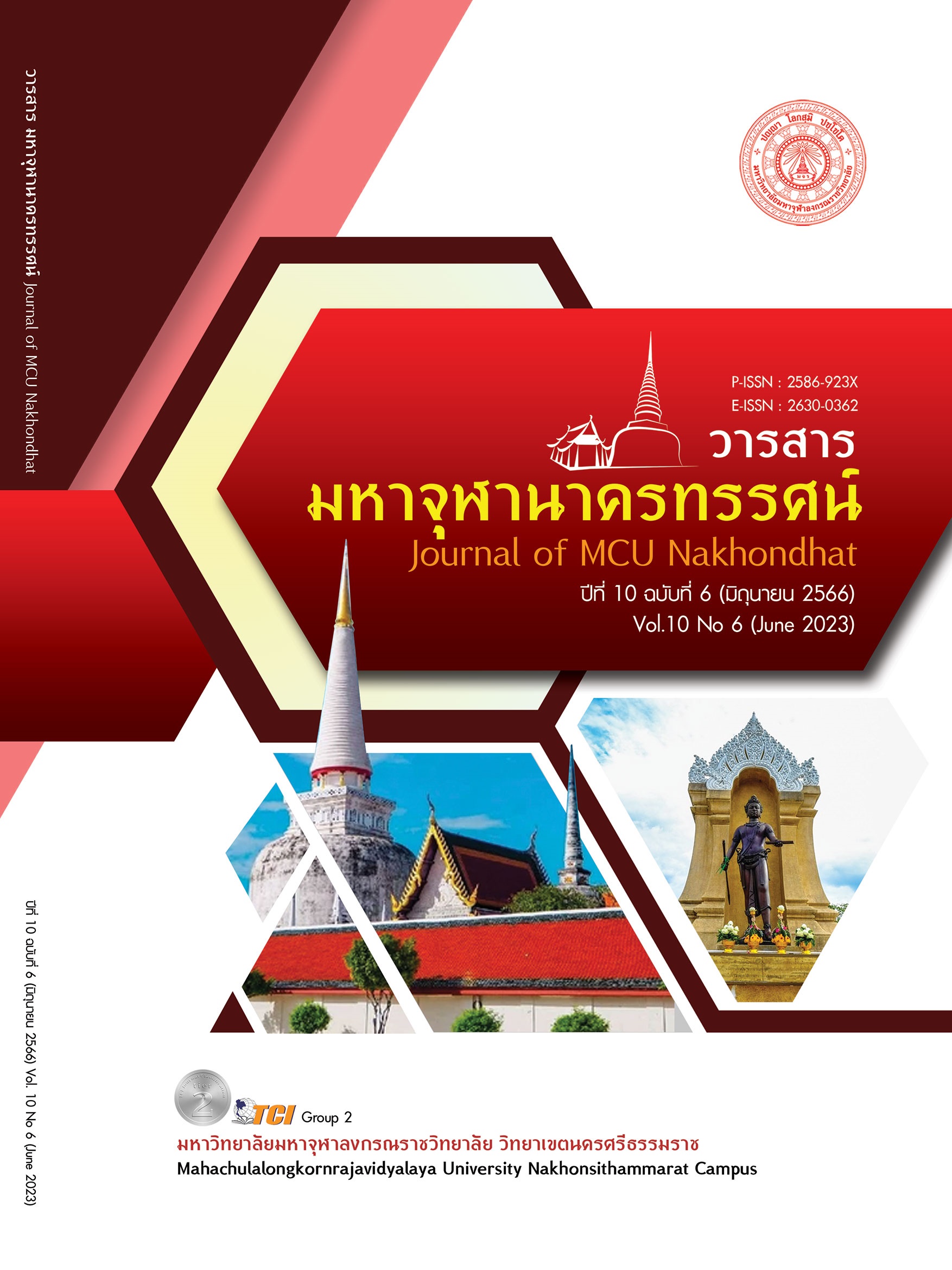PLATFORM LABOR BIAS AND UNFAIRNESS ON THE BASIS OF THE PROSPERITY OF THE DIGITAL ECONOMY
Main Article Content
Abstract
This academic article The objective is to present information about the digital economy and the emergence of platform workers. which affects changes in economic operations related to technological advancement and the development of the digital economy Until leading to a type of labor called “Platform workers” when developing into the digital economy seriously This is evident in the development guidelines determined by the government's digital policy to promote Develop and use digital technology innovations Business operations occur through various platforms. Which is called by a variety of names, including platform economy, digital platform, sharing economy, and gig economy, etc., with the main characteristics of business matching the needs of sellers. and services to meet the needs of buyers of goods and services through digital platforms, smartphones or applications, which creates a group of workers who drive the economy. Along with the author has proposed the issue of inequality. Unfair in terms of rights, restrictions and treatment of platform workers Caused by gaps in human resource management through information technology until it leads to exploitation and causes unfairness to the labor group. In addition, the aforementioned academic article presents guidelines for enhancing fairness for platform workers. which consists of labor welfare Promoting integration and bargaining processes Improving laws to accommodate changes Operating under the framework of fair work and change mindset through the implementation mechanism of 3 sectors: government sector, entrepreneurship and platform labor. based on the promotion of fairness That will lead to reducing the disparity with the platform workers.
Article Details

This work is licensed under a Creative Commons Attribution-NonCommercial-NoDerivatives 4.0 International License.
References
กฤษฎา ธีระโกศลพงศ์. (2563). การบริหารแรงงาน : Gig Economy ตามทัศนมิติแรงงาน. วารสารธรรมศาสตร์, 39(1), 131-158.
ชญาพัฒน์ เลิศอำนาจกิจเสรี. (2565). เศรษฐกิจดิจิทัล: การเกิดและพัฒนาการ. วารสารสันติศึกษาปริทรรศน์มจร, 10(5), 2273-2283.
ดวงนฤมล บุญแก้ววรรณ. (2564). โอกาสหรือวิกฤติของแรงงานแพลตฟอร์มกับ ‘ระยะห่าง’ ระหว่างหยาดเหงื่อกับความ เป็นธรรม. เรียกใช้เมื่อ 20 กุมภาพันธ์ 2566 จาก https://waymagazine.org/labor-welfare-for-platform-labor/
นิภาพรรณ เจนสันติกุล. (2564). แรงงานแพลตฟอร์มในระบบเศรษฐกิจดิจิทัล. วารสารวิชาการแสงอีสาน, 18(1), 1-10.
ภาสกร ญี่นาง. (2564). วิกฤตสิทธิแรงงานในเศรษฐกิจยุคดิจิทัล: ปัญหาความขัดแย้งระหว่าง “ไรเดอร์” กับแพลตฟอร์มที่รัฐเพิกเฉย. วารสาร CMU Journal of Law and Social Sciences นิติศาสตร์ มหาวิทยาลัยเชียงใหม่, 14(1), 84-113.
สถาบันวิจัยและให้คำปรึกษาแห่งมหาวิทยาลัยธรรมศาสตร์. (2562). การลดความเหลื่อมล้ำและสร้างความเป็นธรรม : นัยของการเปลี่ยนแปลงทางเทคโนโลยีกับความเหลื่อมล้ำ – บทเรียนจากเศรษฐกิจแพลตฟอร์ม. ใน รายงานการวิจัย. มหาวิทยาลัยธรรมศาสตร์.
อรรคณัฐ วันทนะสมบัติ และเกรียงศักดิ์ ธีระโกวิทขจร. (2561). เศรษฐกิจแพลตฟอร์มและผลกระทบต่อแรงงานภาคบริการในประเทศไทย. เรียกใช้เมื่อ 20 กุมภาพันธ์ 2566 จาก https://library.fes.de/pdf-files/bueros/thailand/14771.pdf
Berg, J. (2016). Income security in the on-demand economy: Findings and policy lessons from asurvey of crowdworkers. Comp. Lab. L. and Pol'y J., 37, 543. Retrieved February 20, 2023, from https://www.ilo.org/public/libdoc/ilo/2016/490648.pdf
Rocket Media Lab. (2564). Explore the work of riders around the world. Retrieved February 20, 2023 , from https://www.tcijthai.com/news/2021/10/scoop/11979
Tapscott, D. . (1995). The digital economy: Promise and peril in the age of networked intelligence. New York: McGraw-Hill Professional.


